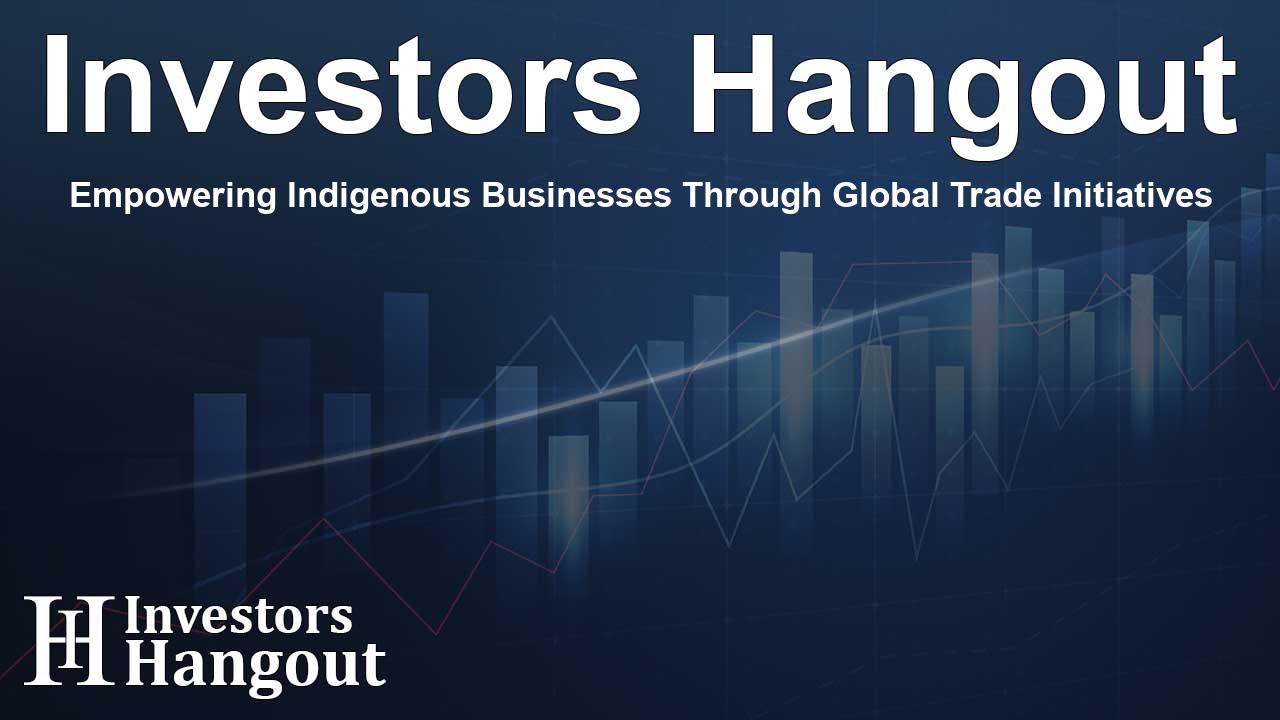Empowering Indigenous Businesses Through Global Trade Initiatives

Empowering Indigenous Businesses Through Global Trade Initiatives
In a significant discourse on trade inclusivity, Tabatha Bull, the President and CEO of the Canadian Council for Indigenous Business (CCIB), recently took center stage at the World Trade Organization (WTO) Forum. Her discussion surrounded a crucial report that unveils the challenges Indigenous businesses face when exporting their products and services.
Insights from the Atamitowin Report
The report titled Atamitowin represents the second installment in a comprehensive study conducted in collaboration with Global Affairs Canada (GAC). It dives into the hurdles that Indigenous businesses encounter, specifically focusing on their aspirations for expansion through exporting. This report draws upon responses from a national survey involving 2,603 Indigenous-owned businesses, shedding light on their roles in the economy. For instance, businesses engaged in exporting reported a striking 12 percent increase in sales between 2019 and 2021, showcasing the potential impact of more supportive trade practices.
Addressing the Export Gap
The inaugural report, titled Adawe, highlighted an alarming export disparity. It determined that Indigenous small and medium-sized enterprises (SMEs) are only 7 percent as likely to engage in exporting compared to their non-Indigenous counterparts, who are 12 percent likely to export. Despite these barriers, progress is on the horizon, emphasizing a pressing need for more inclusive trade agreements and Indigenous-focused programs that can nurture these businesses, according to Bull.
Growing Interest in Trade
“There is definitely increased interest among Indigenous businesses in trade and export,” Bull affirmatively states. “There’s a willingness, a passion, and a mission for Indigenous businesses to be part of the economy, both within Canada and globally. We are a persistent people.” This sentiment underscores the growing determination within Indigenous business communities to integrate into global trade networks.
The Role of the WTO Forum
Hosted in Geneva, Switzerland, the WTO Forum provided a platform for global dialogues on inclusive trade strategies. Bull’s participation on the panel titled Indigenous Trade: Sharing Experiences and Exploring Possibilities allowed her to share insights alongside distinguished panelists such as Ben Morgan from the Organisation for Economic Co-operation and Development (OECD) and Carrie Stoddart-Smith from OpinioNative, with moderation by Jaqueline Palladini of GAC. Their collective expertise emphasized the need for inclusive trade practices that reach a broader spectrum of communities.
Importance of Research and Development
CCIB stands firm on its commitment to producing Indigenous-centric research, which they view as essential for accurately addressing the unique needs of Indigenous businesses. By identifying these needs, CCIB enhances avenues for the growth of the Indigenous economy, ensuring these businesses are equipped to thrive in both national and international markets.
Conclusion
The work highlighted in reports such as Atamitowin is pivotal as Canada navigates its role in supporting diverse business ecosystems. Tabatha Bull’s voice in this conversation brings to light the resilience and vitality present in Indigenous entrepreneurship. As more Indigenous businesses engage with global markets, the potential for economic empowerment and cultural exchange expands, enriching not only Indigenous communities but also the broader economy.
Frequently Asked Questions
What is the main focus of the Atamitowin report?
The Atamitowin report focuses on the challenges and barriers faced by Indigenous businesses in exporting their products, while highlighting their growth potential.
How does Indigenous export capability compare to non-Indigenous businesses?
Indigenous small and medium-sized enterprises are 7 percent as likely to export, compared to 12 percent for non-Indigenous SMEs, indicating a significant gap.
What did Tabatha Bull emphasize about Indigenous businesses?
Tabatha Bull emphasized the increasing interest and determination among Indigenous businesses to engage in trade and make contributions to both the Canadian and global economies.
What was the purpose of Bull's participation in the WTO Forum?
Bull participated in the WTO Forum to discuss the necessity of inclusive trade practices and to share Indigenous business experiences and aspirations on a global stage.
How does CCIB support Indigenous businesses?
CCIB supports Indigenous businesses by providing programming, tools, and research to address their unique needs and foster economic growth.
About Investors Hangout
Investors Hangout is a leading online stock forum for financial discussion and learning, offering a wide range of free tools and resources. It draws in traders of all levels, who exchange market knowledge, investigate trading tactics, and keep an eye on industry developments in real time. Featuring financial articles, stock message boards, quotes, charts, company profiles, and live news updates. Through cooperative learning and a wealth of informational resources, it helps users from novices creating their first portfolios to experts honing their techniques. Join Investors Hangout today: https://investorshangout.com/
Disclaimer: The content of this article is solely for general informational purposes only; it does not represent legal, financial, or investment advice. Investors Hangout does not offer financial advice; the author is not a licensed financial advisor. Consult a qualified advisor before making any financial or investment decisions based on this article. The author's interpretation of publicly available data shapes the opinions presented here; as a result, they should not be taken as advice to purchase, sell, or hold any securities mentioned or any other investments. The author does not guarantee the accuracy, completeness, or timeliness of any material, providing it "as is." Information and market conditions may change; past performance is not indicative of future outcomes. If any of the material offered here is inaccurate, please contact us for corrections.